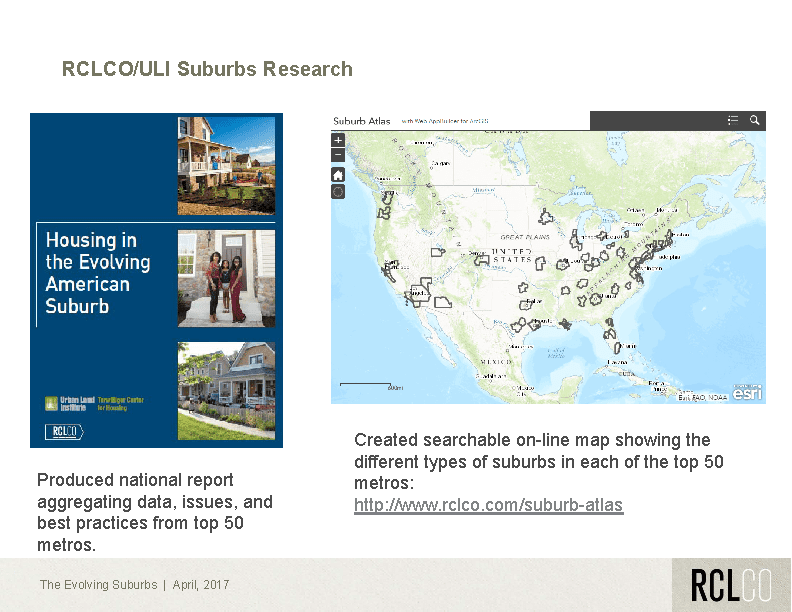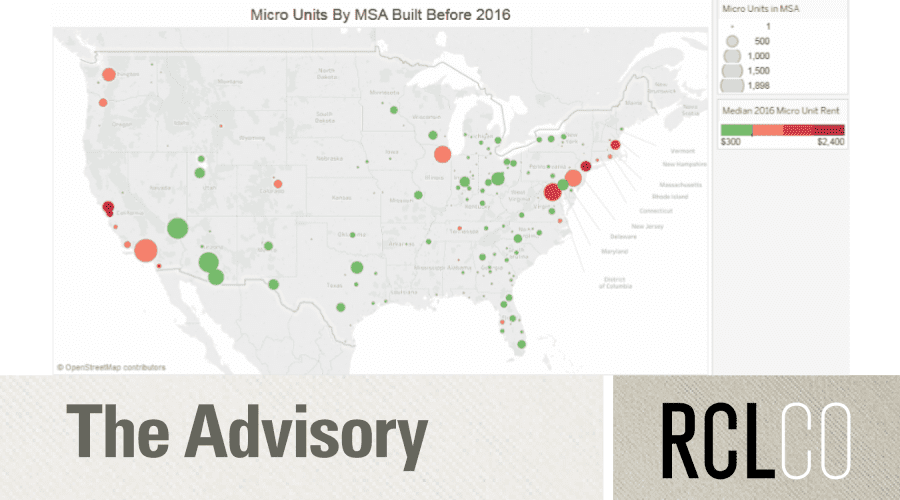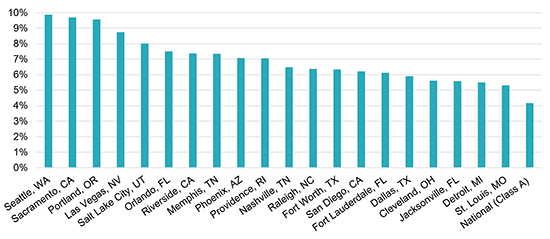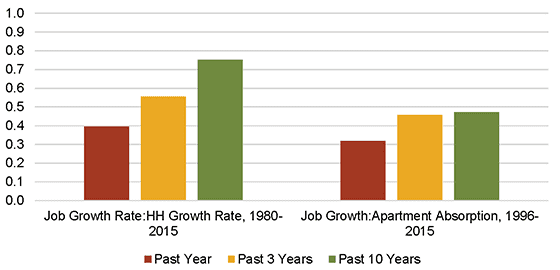RCLCO’s Strategic Approach to Impact Analysis Adds Value for Our Clients

RCLCO’s impact studies are considered to be beyond reproach by our clients and other public sector officials and staff. But RCLCO’s clients particularly value us for the strategic approach we take to our analyses. We strive to dig into a particular situation’s key issues and use analytically sound and intellectually rigorous methods to address them.
For example, for the Downtown Silver Spring development in suburban Washington, D.C., we were able to quantify the massive fiscal and economic benefits to the state and county in a way that greatly contributed to obtaining substantial state and county assistance for infrastructure, including structured parking. The fiscal and economic benefits, including extensive nearby spinoff development, have exceeded our forecasts.
In the past few years, RCLCO provided key inputs to Loudoun County, Virginia, as it decided to what extent to provide financial assistance for the proposed extension of the Metrorail system through Dulles Airport to the county. RCLCO prepared objective forecasts of the most likely development and fiscal impacts from the rail extension which were judged to be more reasonable than the predictions of extension opponents who claimed there would be virtually no impact, and some extension advocates who predicted unrealistically large impacts. The Board of Supervisors relied on our analysis to estimate the likely revenues and to structure a combination of government funds and impact fees to finance the county’s share of the extension cost.
Most recently, RCLCO has been working with the developer of a controversial mixed-use transit-oriented development in another jurisdiction. Our analysis found that the development would have a very positive impact on the local government. But just as the planning board and governing body were about to vote on the required entitlements, the finance department staff issued a report showing a negative impact. RCLCO dug into their results and uncovered that their analysis had some significant flaws, including use of a student generation rate that was clearly wrong for the planned housing types. RCLCO’s analysis led to staff making some key changes to their analysis, which converted the results to positive; the local paper headline read: “Project Now Expected to Take in—Not Lose—Millions.” This counteracted a key argument of opponents of the development, and the governing body straw vote earlier this month supported the approval of the development.
RCLCO has also been working with the developer of a continuing care retirement community (CCRC) in another jurisdiction. The development would clearly be very positive fiscally, but RCLCO and the client realized that the required capital impact fees (based on conventional multifamily housing) would far exceed the impact that the community’s residents would have. Many of the residents’ needs that might otherwise involve use of county facilities will be met on-site or don’t serve seniors at all, and the impact fees are calculated on a per capita basis without recognizing the much smaller household sizes in housing developments catering to older seniors. RCLCO’s analysis and impact fee recommendations played a key role in convincing the governing body to approve the development with the requested impact fees. The planner and attorney working on the project were both kind enough to e-mail us after the vote earlier this month: “The great work you provided on this project contributed greatly to our team’s success” and “Thanks again for your help. We could not have obtained approval without you.”
For additional information, please contact Leonard Bogorad at lbogorad@rclco.com or 240-644-1005.
Related Articles
Speak to One of Our Real Estate Advisors Today
We take a strategic, data-driven approach to solving your real estate problems.
Contact Us









